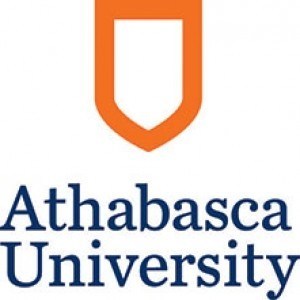The Bachelor of Nursing (Post R.N.) at Athabasca University is a comprehensive degree program designed specifically for registered nurses seeking to expand their knowledge and advance their careers in the nursing profession. This innovative online program offers a flexible learning environment, allowing students to balance their professional responsibilities with their educational aspirations. Building on the foundational skills acquired through registered nursing certification, the program provides an in-depth exploration of advanced nursing practices, healthcare management, and evidence-based approaches to patient care. Students will engage with a diverse curriculum that covers topics such as healthcare policy, leadership, research methodology, ethical considerations in nursing, and innovative healthcare delivery models. The program emphasizes critical thinking, clinical decision-making, and interdisciplinary collaboration to prepare graduates for leadership roles in a variety of healthcare settings. Through engaging online coursework, self-paced study options, and opportunities for practical application, students can develop the competencies required to address contemporary health challenges. The degree also prepares graduates for potential postgraduate studies or specialization in areas such as community health, leadership, or education. Athabasca University's commitment to accessibility and flexible learning makes this program an ideal choice for working nurses across Canada and beyond who wish to elevate their professional skills without interrupting their careers. Upon completion of the program, graduates will be equipped with the knowledge, skills, and confidence necessary to contribute effectively to the evolving landscape of healthcare, improve patient outcomes, and assume advanced roles within the nursing field.
The Bachelor of Nursing (Post R.N.) program at Athabasca University is designed to enhance the professional skills and knowledge of registered nurses seeking to advance their careers in healthcare. This program provides a comprehensive curriculum that combines theoretical learning with practical application, preparing graduates to excel in diverse clinical and leadership roles within the healthcare system. Through this program, students will deepen their understanding of nursing practices, healthcare ethics, and patient-centered care, while also developing skills in research, evidence-based practice, and healthcare management.
The curriculum includes a variety of courses that address key areas such as nursing theory, community health, pharmacology, health assessment, and nursing leadership. Emphasizing critical thinking and problem-solving, the program encourages students to analyze complex healthcare scenarios and develop effective strategies for patient care. The coursework is delivered through flexible, online learning modules, enabling students to balance their studies with professional and personal commitments.
A unique feature of the program is its focus on integrating current healthcare trends and innovations, preparing students to adapt to evolving clinical environments. Students will also engage in practicum placements or simulations that provide real-world experience and enhance hands-on skills. Throughout their studies, learners will be supported by experienced faculty members dedicated to fostering academic success and professional development.
Graduates of the Bachelor of Nursing (Post R.N.) program are equipped to transition into advanced nursing roles, such as nurse practitioners, healthcare administrators, or educators. They will have the credentials necessary to participate actively in improving healthcare quality and patient outcomes. Athabasca University's flexible online format ensures that registered nurses can pursue their degree without interrupting their careers, making this program an ideal choice for motivated professionals seeking to elevate their nursing expertise and leadership capabilities.
Program Requirements: The Nursing (Post R.N.) program at Athabasca University is designed for registered nurses seeking to advance their education and expand their professional competencies. Applicants must hold a current and valid registration as a registered nurse from a recognized licensing authority. Prior nursing experience is required, typically a minimum of one year of clinical practice post initial registration, to ensure students possess foundational practical knowledge. Prospective students must have completed prerequisite coursework in introductory nursing concepts, which may include courses in nursing fundamentals, health assessment, and pharmacology, although specific course requirements are assessed on an individual basis during the application process. A bachelor's degree in nursing or an equivalent credential is often preferred or required, depending on program admissions standards.
English language proficiency must be demonstrated through standardized tests such as TOEFL or IELTS if the applicant's primary language is not English. Transcripts from all post-secondary institutions attended must be submitted for review, along with a current resume or curriculum vitae detailing clinical and professional experience. Letters of reference from professional colleagues or supervisors are usually required, emphasizing the applicant's clinical skills and readiness for advanced nursing education. The application process also includes a personal statement that outlines the applicant’s career goals and motivation for pursuing the program.
International students are advised to review additional requirements such as study permits and equivalent credential recognition. Once admitted, students must complete a set of core courses which include advanced health assessment, evidence-based practice, leadership and management in healthcare, and specialized nursing topics relevant to their area of practice. Clinical components involve supervised practice hours that are arranged in partnership with local healthcare facilities to ensure practical skill development. Successful completion of the program culminates in the awarding of a graduate certificate or diploma in Nursing (Post R.N.), enabling graduates to pursue roles with greater responsibility, specialize further, or advance into nursing education or research roles.
Want to improve your English level for admission?
Prepare for the program requirements with English Online by the British Council.
- ✔️ Flexible study schedule
- ✔️ Experienced teachers
- ✔️ Certificate upon completion
📘 Recommended for students with an IELTS level of 6.0 or below.
Financing studies for the Nursing (Post R.N.) program at Athabasca University are designed to be accessible and flexible for registered nurses seeking to advance their education. Students can explore various options including federal and provincial student loans, which are available to Canadian residents meeting specific eligibility criteria. These loan programs typically cover tuition fees, textbooks, and living expenses, enabling students to focus on their studies without undue financial burden. Athabasca University also offers information on scholarships and bursaries specifically aimed at supporting nursing students, which can significantly reduce out-of-pocket expenses. Additionally, students are encouraged to investigate employer-sponsored education programs, as many healthcare employers provide tuition reimbursement or funding opportunities for continuing education, especially for licensed professionals seeking advanced credentials. The university's flexible online format allows students to balance work commitments and studies, making it possible to sustain employment while completing their degree. For international students, financing options may differ and usually involve private loans or scholarships, if available, with some guidance provided on international funding sources. Athabasca University also provides financial planning resources and advice to help students budget effectively and access relevant financial aid programs. The university's commitment to accessible education ensures that financial constraints do not hinder qualified registered nurses from pursuing postgraduate studies. Overall, the program's financing options aim to support students throughout their academic journey, helping them to enhance their professional qualifications and improve their career prospects without financial stress.
The Bachelor of Nursing (Post R.N.) program at Athabasca University is designed to provide registered nurses with advanced education and training to enhance their professional skills and knowledge in the field of nursing. This program is tailored for licensed registered nurses who wish to pursue a degree that recognizes their existing credentials and professional experience while offering rigorous coursework to deepen their understanding of nursing theory, leadership, research, and evidence-based practice.
The program emphasizes the development of critical thinking, clinical decision-making, and leadership abilities, preparing graduates to take on more advanced roles within healthcare settings. Courses are delivered through a flexible online format, allowing students to integrate their studies with their professional and personal commitments. This structure benefits working nurses who require a program that accommodates their schedules, enabling them to study from anywhere and at any time.
Students in the program can expect to engage in a variety of learning activities, including interactive modules, case studies, and virtual simulations that simulate real-world healthcare scenarios. The curriculum incorporates current healthcare challenges and emphasizes cultural competence, ethical practice, and interprofessional collaboration. The program also encourages research literacy, preparing students to incorporate evidence-based practices into their nursing care.
During their studies, students may be required to complete practicum or clinical hours, depending on their prior experience and specific course requirements, to ensure practical competence in advanced nursing roles. Graduates of the program typically pursue leadership positions, regulatory roles, or specialization areas such as community health, management, or education. They are well-equipped to contribute to healthcare innovations and policy development.
Admission to the program generally requires current licensure as a registered nurse, along with relevant professional experience. The program’s duration varies but is generally completed within two to three years of part-time study. Upon successful completion, graduates earn a Bachelor of Nursing (Post R.N.) degree, which can enhance career prospects both nationally and internationally. The program also prepares students for potential graduate studies or advanced certifications in nursing specializations.
Athabasca University’s commitment to accessibility and quality education ensures that students receive a comprehensive learning experience that combines theoretical knowledge with practical application. The university provides a variety of support services, including academic advising, technical support, and access to a network of healthcare professionals and alumni. Graduates emerge as competent, confident nursing professionals ready to meet the evolving demands of healthcare systems worldwide.


